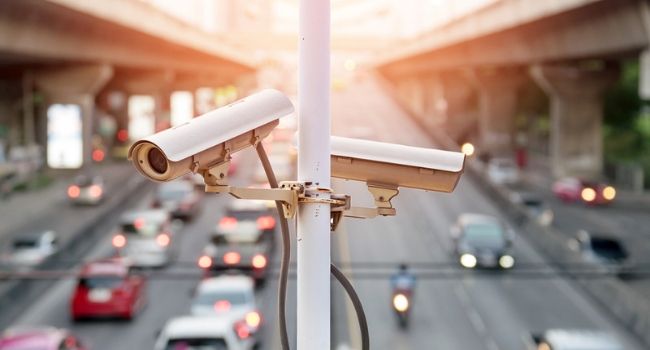
Illinois Law Creates Camera Program To Investigate Expressway Shootings in Chicago
Following a rise in expressway violence, law enforcement will add about 35 cameras to look into shootings that are notoriously difficult to solve.
- By Haley Samsel
- Jul 23, 2019
A new Illinois law named in honor of a woman fatally shot on an expressway will give Chicago-area law enforcement officers the authority to create a camera program to investigate expressway shootings.
Illinois Gov. J.B. Pritzker signed the Tamara Clayton Expressway Camera Act into law on July 12 after it received unanimous support in both chambers of the state legislature. Now, the state police force, department of transportation and toll highway authority will come together to work out the details of the program, The Chicago Tribune reported.
Although the Illinois state police have tried to combat expressway violence in recent years, they have made only 12 arrests in connection with 179 reported expressway shootings in the Chicago area, according to the Tribune.
Thaddeus Jones, a state representative who led the movement to pass the law, said in April that the program would cover 35 cameras in Cook County for a cost of about $500,000 and would only be used to investigate expressway shootings and not “petty offenses."
The transportation department already operates around 275 cameras in the area for “traffic management purposes,” spokesman Guy Tridgell told the newspaper. But those cameras do not record footage due to funding constraints and the system’s capabilities, instead sending a live feed to the department’s communications center for traffic monitoring.
Gun violence activist Andrew Holmes told the Tribune that he and other proponents of the law want future expressway cameras to have the capability of recording high-definition footage and identify license plates.
“We have to update the quality and the technology to help [police] and save lives and let [offenders] know that your Big Brother is always watching,” Holmes said.
State senator Jacqueline Collins of Chicago, who sponsored the bill, said more cameras on the expressway will help combat shootings.
“I think the culprits believe there’s no way to trace who is committing the crime and they see [expressway shootings] as a way of avoiding the penalties of the gun violence,” Collins told the paper. “We have to have ears and eyes throughout the city, the state, in reference to those individuals…who want to perpetuate violence on our citizens.”
Clayton’s sister, Alma Hill, said she was pleased that the legislation was approved and signed into law so quickly, according to the Tribune. Clayton’s killing, which took place on Feb. 4 while she was driving to work, remains unsolved.
“I just want to identify the people who are wreaking havoc on the expressways, and I want them to understand... that [police] see them and they are going to have some accountability,” Hill said.
About the Author
Haley Samsel is an Associate Content Editor for the Infrastructure Solutions Group at 1105 Media.